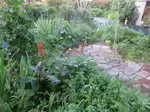Dear Reader, in this age of AI created content, please support with your goodwill someone who works harder to provide the human-made. Sign up at the top of the lefthand column or bottom of this page. You will receive my hand illustrated monthly newsletter RESTORE NATURE and access to the biodiversity garden design course as I write...and nothing else, I respect your time. I am also removing the advertizing as best I can as its become intrusive inappropriate and pays me nothing.
Workshop on building a gray water system
On this workshop we had a tour of the gray water system at Guerilla House premises in Surrey Estate / Greenhaven.
Organic system components such as worm filtration and man made wetlands and water plants were discussed, as well as the mechanical system components. The workshop was designed to sharpen awareness of the wastage of 'waste' water that goes down drains instead of into the ground to rehydrate the landscape. This is especially pertinent with the constant threat of drought. Imraan recommends reading Art Ludwig, who has 30 years of experience with gray water management.
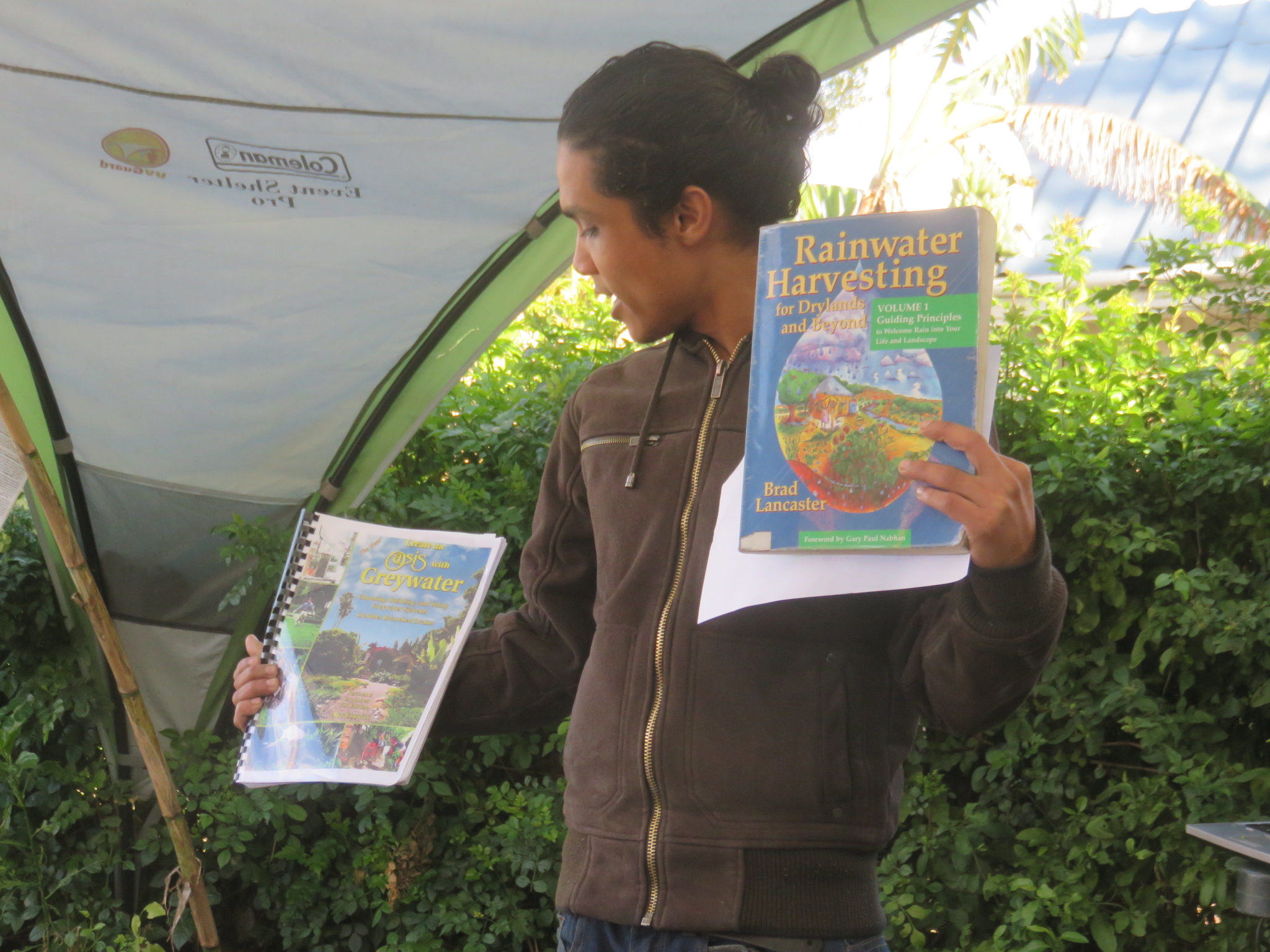 An introduction to some good water saving literature
An introduction to some good water saving literatureWhat is waste water ?
Waste is a constructed concept according to Joe Jenkins. Waste is raw material for further processing. What we term waste water in a domestic context comes from laundry, dishwashers, the kitchen sink, showers, basins and 'black' water, or water containing sewage.
What does the City of Cape Town prescribe for a gray water system
The city of Cape Town forbids the use of black water for domestic recycling such as irrigation, and places restrictions on the use of gray water in the home, except for irrigation. Art Ludwig calls the gray water from the kitchen sink 'dark gray' because it contains enough nutrients and contaminants to produce pathogens, even from vegetarian only cooking. Thus kitchen sink water is not recommended even for the garden.
Any systems which utilize
gray water in the home, such as using rain water to flush toilets, must be authorized by the city, supplied with a back flow prevention valve in order to avoid possible contamination of city water supplies, and the work must be signed off by a certified plumber. By law any gray water outlets
must be labelled with a notice as non potable.This also applies to any alternative water supply including ground and rain water that is not from the city's mains. Regular water testing is also recommended.
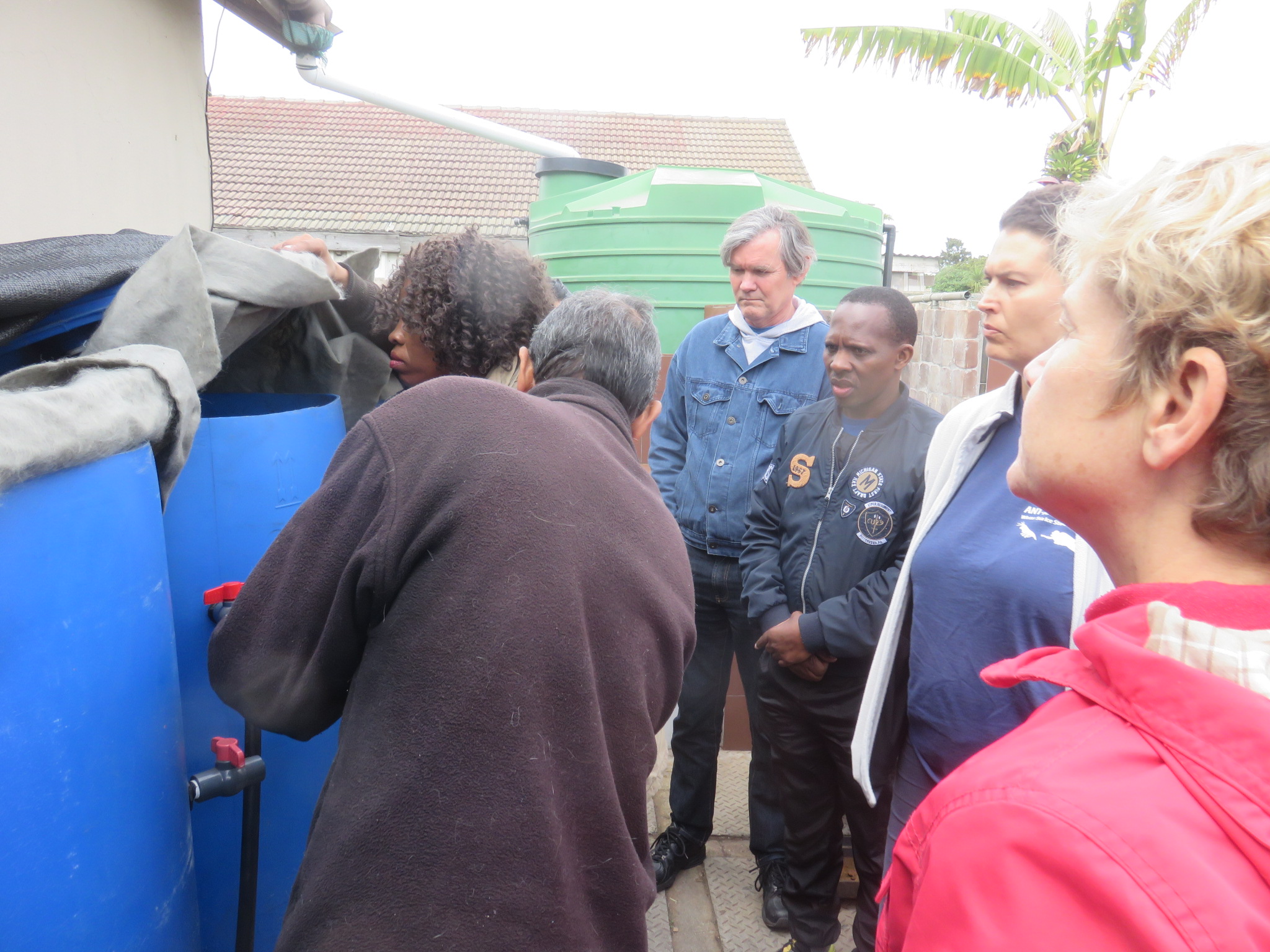 Workshop attendees show enormous interest in water conservation
Workshop attendees show enormous interest in water conservationGray water and drought proofing
Some people, especially after the mass mobilization to save water during the 2017-2018 summer drought, hold that all gray water is a valuable resource. Its likely that the average householder has the intelligence and skill to use it wisely, especially if equipped through education on gray water use. There are many good reasons for recycling: using gray water minimizes the load on septic tanks and prolongs their service, it reduces the burden on our overtaxed sewerage and water purification plants. The outflow from these usually goes to the sea in Cape Town. If we rather let gray water enter the earth, soil can break down all the contaminants better than a mechanical waste water plant, reducing infrastructure expenditure and energy use, and recharging the ground water. More groundwater will lead to more vegetation cover. This vegetation cover reduces soil erosion and increases local precipitation, or rain, which will decrease the chances of drought and mitigate climate change.
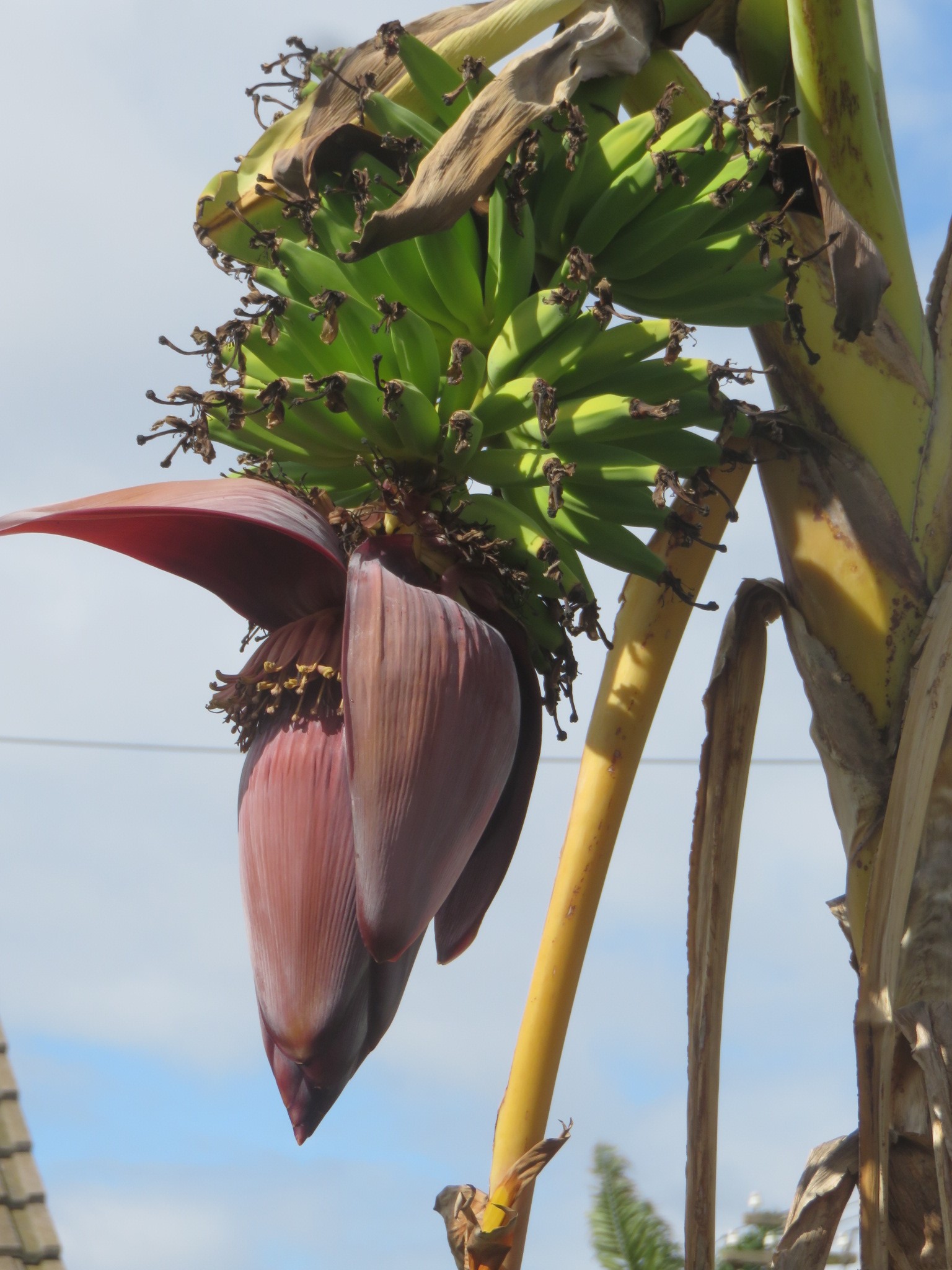 A banana tree thrives on Imraan's gray water irrigation
A banana tree thrives on Imraan's gray water irrigationThe basic components of a gray water system
The basic components of a gray water system are collection plumbing within the house walls, external plumbing, filtration, a possible surge tank for management of peak water flow, a means of moving the water, that is pumps, siphons, humans or gravity, possible short term storage capacity, hoses and pipes for distribution of the water, the mulch pit, the receiving landscape, the people who manage the system, and the obligatory warning signage.
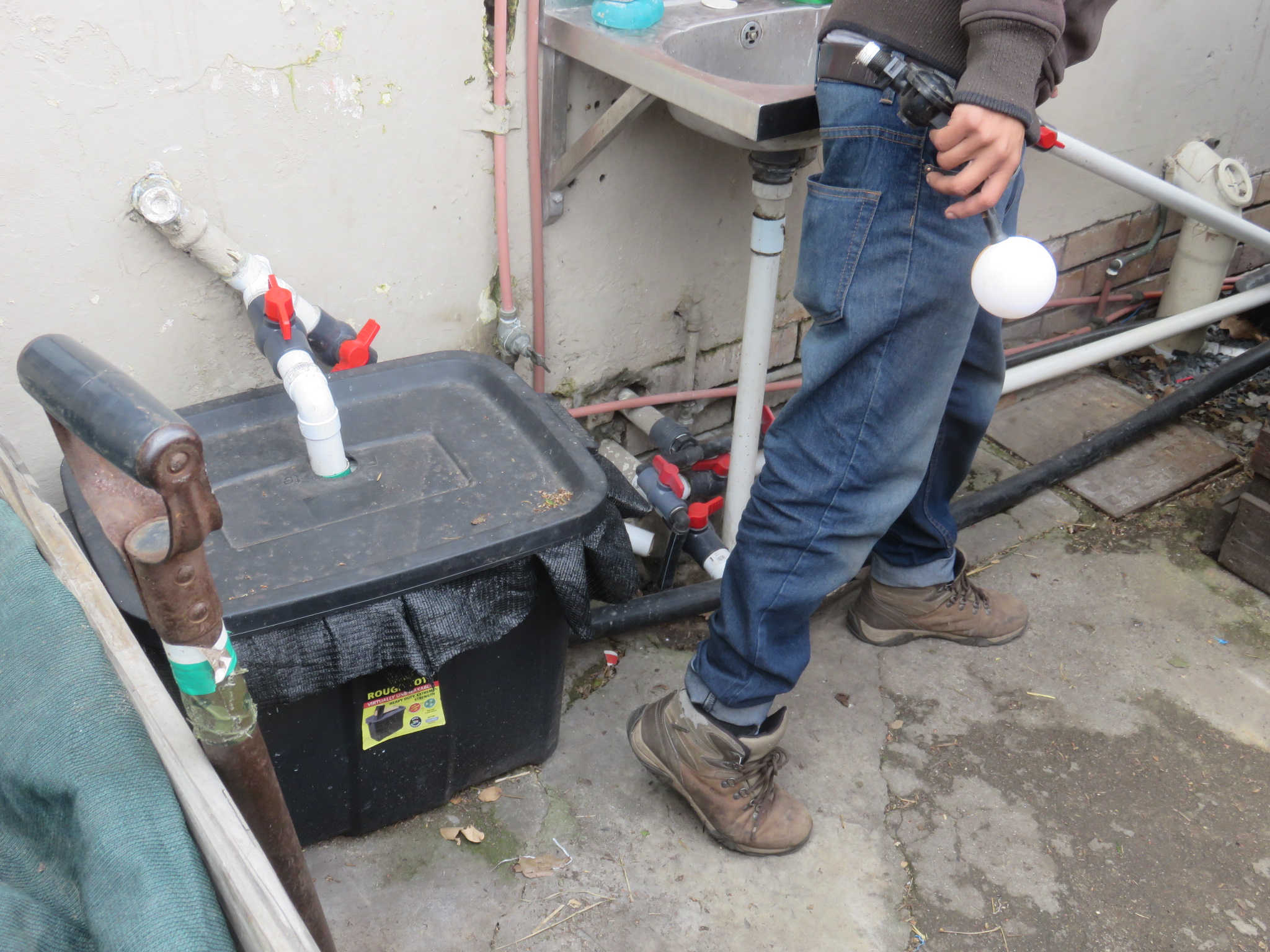 kitchen sink outflow into worm bin with diversion into waste water if needed. Worm bin acts as organic filter. From there all sources flow away to the garden at the right.
kitchen sink outflow into worm bin with diversion into waste water if needed. Worm bin acts as organic filter. From there all sources flow away to the garden at the right.So... what can we do ?
Filter
We may legally adapt external plumbing, but not internal. This means you can cut the gray water exit pipes from your house (but not the black water). As the waste water flow leaves the house, it is suggested that one filter as soon as possible to protect the system from clogging. Filters may be bought from pool suppliers or made from recycled items like sieves or fabrics and must be cleaned and emptied regularly.
A large filtration system. This one for ground water, but can be used for gray.
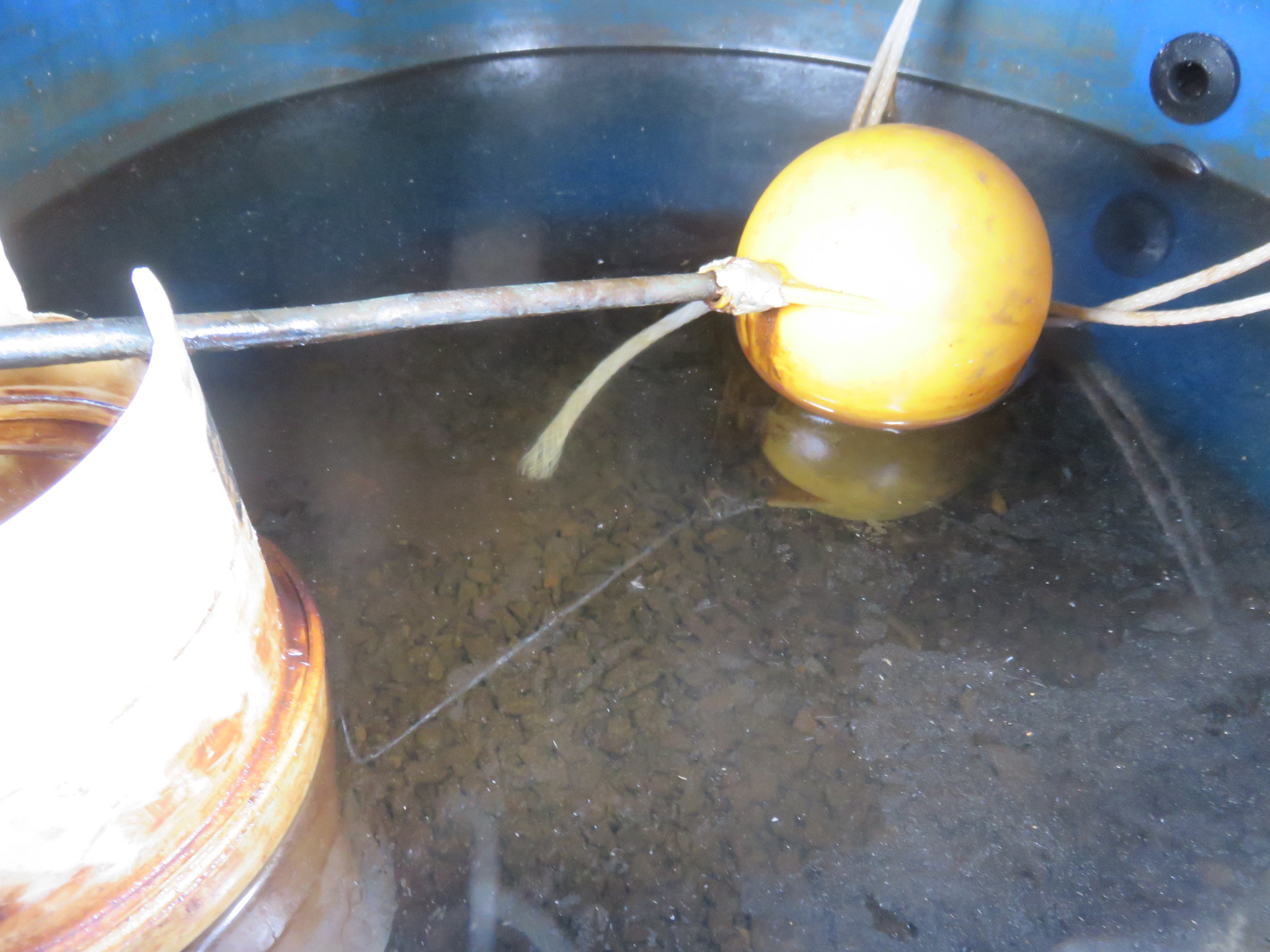 up through stone
up through stone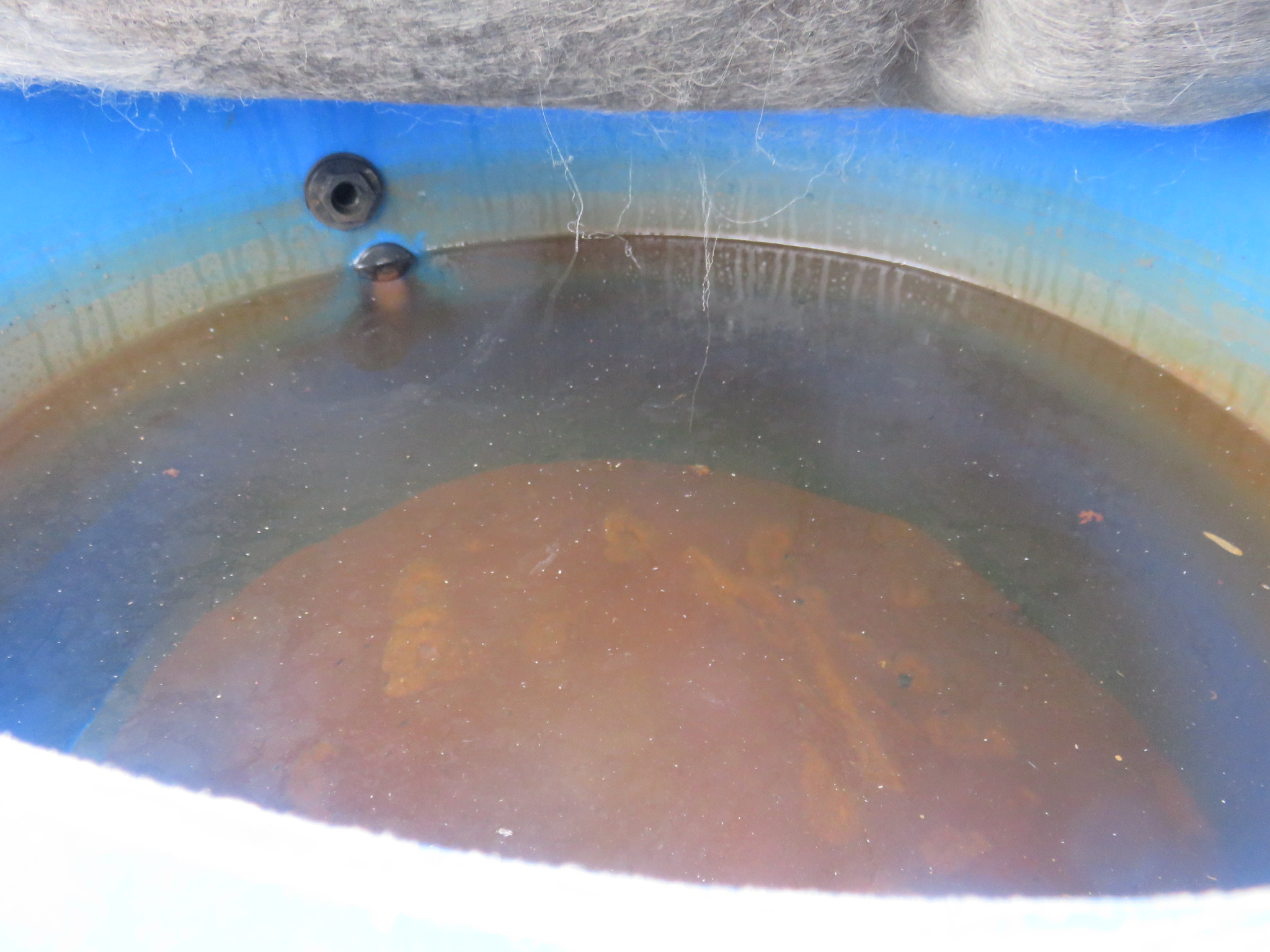 down through sand
down through sand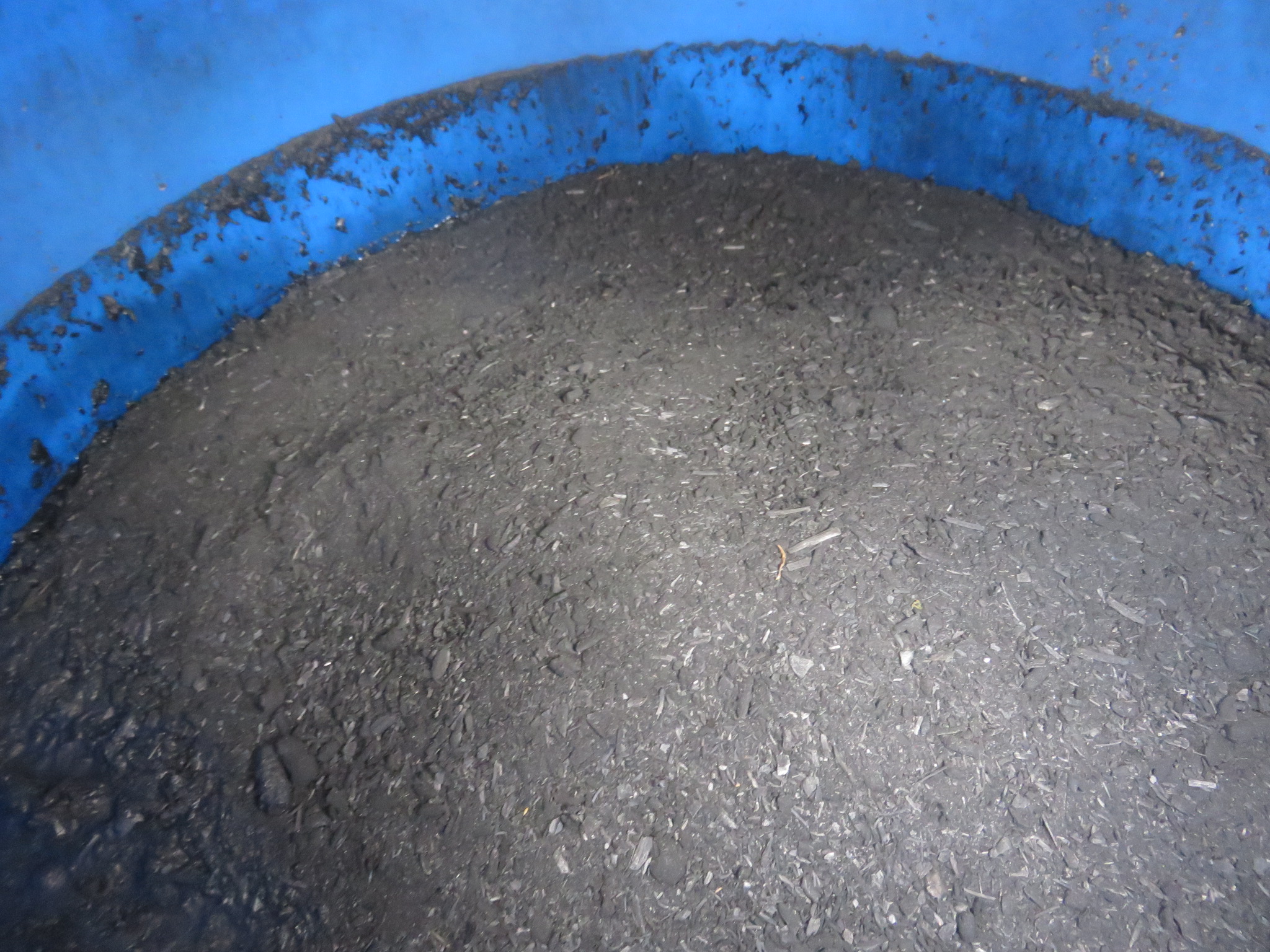 down through char
down through char adjustable rotating tube outlet, complements ballcock inlet to regulate levels in filters
adjustable rotating tube outlet, complements ballcock inlet to regulate levels in filtersSurge tank
The water then empties into a surge tank large enough to take the maximum outflow from your house, say bath or washing machine, without backing up. The surge tank lets out the water at a steady pace instead of in a flood. A surge tank may not necessary if your piping can accommodate the peak flow easily, but it is safest to have one..
Conduct water to garden
From the surge tank you need to get your water to the garden. If your outlet is very low you may need a pump to lift it. Try avoiding pumps by using gravity. Do not store gray water for longer than 24 hours or it will go off, which is unsafe, even fatal to old people or babies who drink it. Gray water must not pool in the garden either, but be fed into the ground.
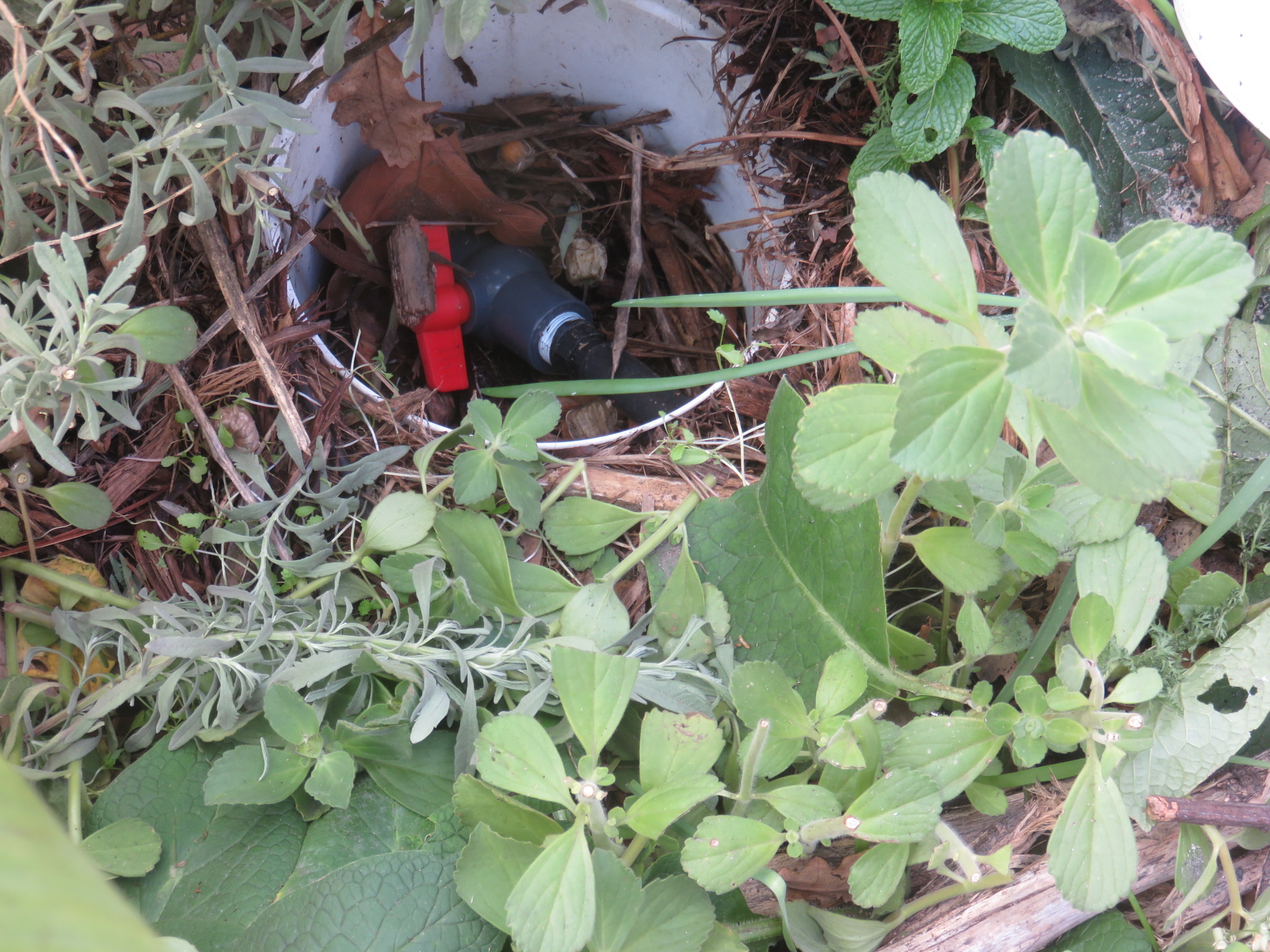 outlet valve protected by bucket buried in mulch pit
outlet valve protected by bucket buried in mulch pitMulch pits
A mulch pit is a pit in the ground full of organic material, especially carbon rich material like wood chips. These serve as a medium for growing useful organisms that help clean up dirty water as it percolates through the material. The organics are also highly absorbent. The gray water pipe should empty into a mulch pit in the garden for removing odours and contaminants and soaking up the water and slowly letting it seep into the soil. Clay soil needs a larger mulch pit so that there is no surface standing water.
Bring people on board
Make sure those using the system buy in, and understand how to use it safely, and find someone prepared to do the necessary maintenance. Place the required city of Cape Town signage saying 'non potable gray water' at the gray water outlet.
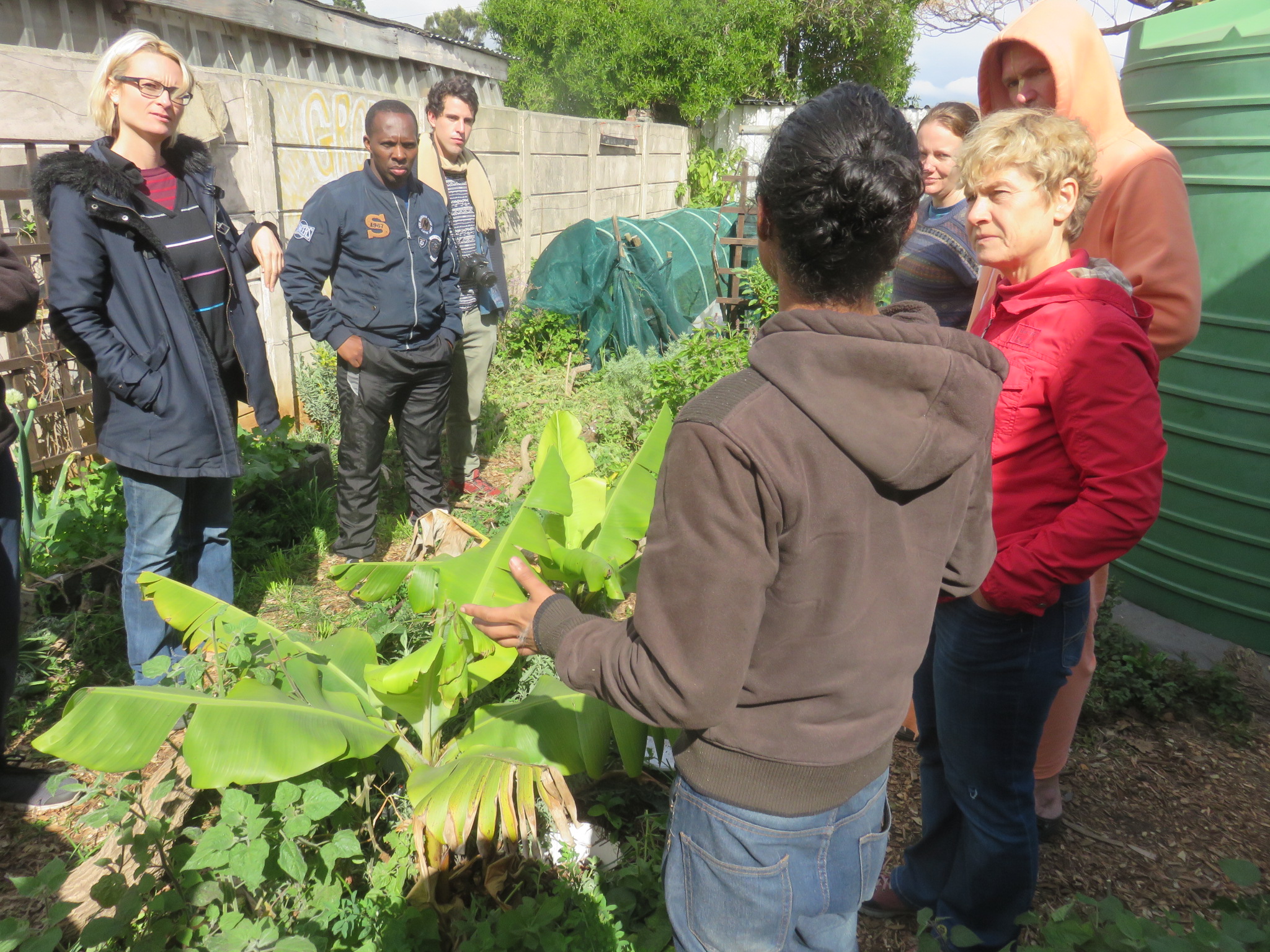 Irrigation, education and fertility results
Irrigation, education and fertility resultsDesigning your own gray water system
Because of the potential health hazards it is necessary to understand what you are doing when designing a gray water system. The matter needs to be studied further as there are many types of system, and different possible components.
Imraan discussed criteria to consider when designing your own gray water system, which are too detailed to cover here. We were informed of different gray water system types of varying complexity, the efficacy of various options, soil percolation rates, advanced filtration, pipe and pump specs and the optimal system plumbing and choice of detergents.
Guerilla House practice is to empower do it your selfers and impart know how, and they usually over deliver and supply fantastic follow through. A few days after the workshop participants received downloadable literature and links to useful websites for more information and participation, including the workshop participant forum, which is very useful.
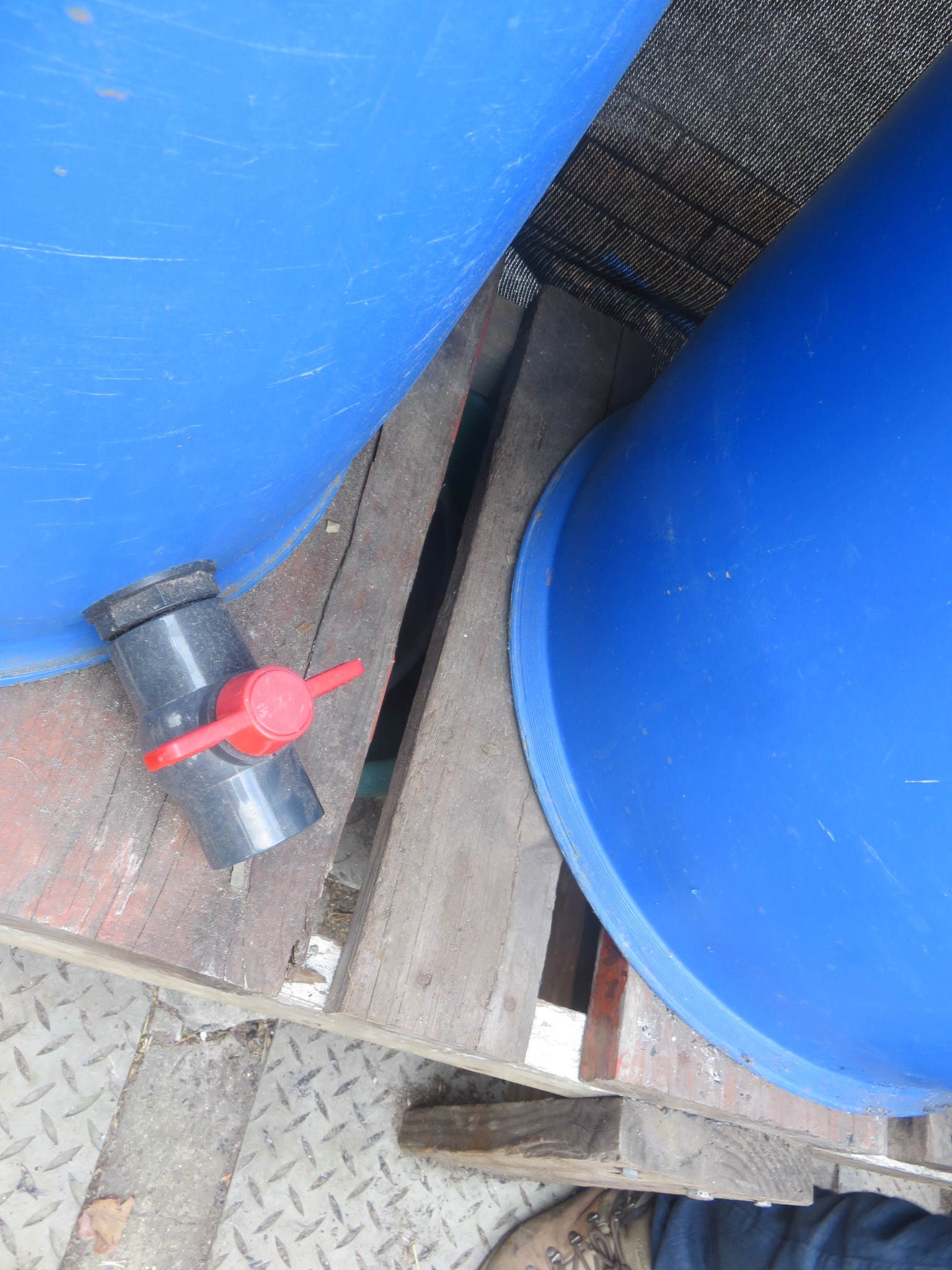 flushing valve for stone flushing valve for stone |
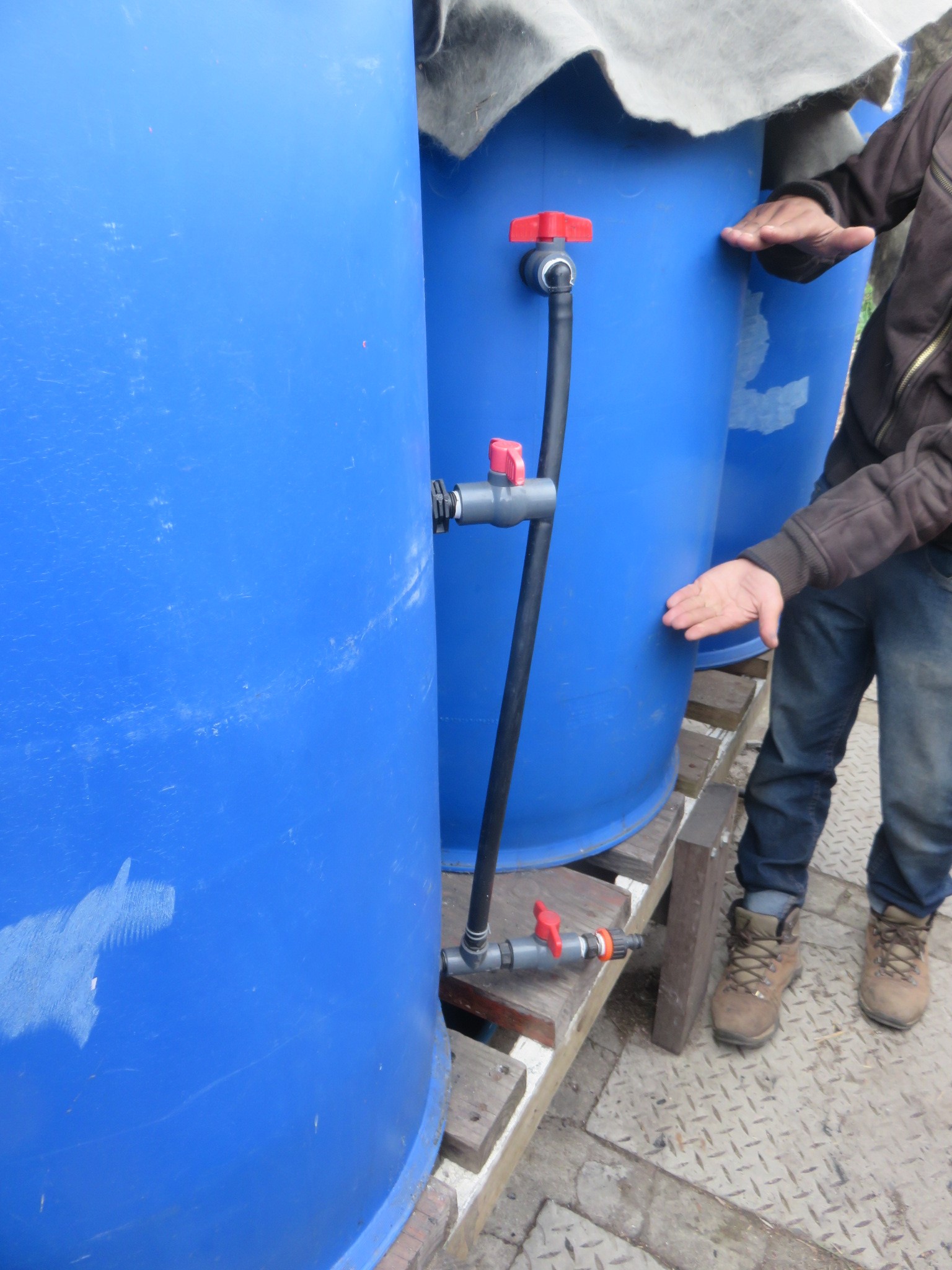 sand to char connection sand to char connection |
------
home page for links to wide range of information on living green and gardening
------
------
Restore Nature Newsletter
I've been writing for four years now and I would love to hear from you
Please let me know if you have any questions, comments or stories to share on gardening, permaculture, regenerative agriculture, food forests, natural gardening, do nothing gardening, observations about pests and diseases, foraging, dealing with and using weeds constructively, composting and going offgrid.
SEARCH
Order the Kindle E-book for the SPECIAL PRICE of only
Prices valid till 30.09.2023
Recent Articles
-
garden for life is a blog about saving the earth one garden at a time
Apr 18, 25 01:18 PM
The garden for life blog has short articles on gardening for biodiversity with native plants and regenerating soil for climate amelioration and nutritious food -
Cape Flats Sand Fynbos, Cape Town's most endangered native vegetation!
Apr 18, 25 10:36 AM
Cape Flats Sand Fynbos, a vegetation type found in the super diverse Cape Fynbos region is threatened by Cape Town's urban development and invasive alien plants -
Geography Research Task
Jan 31, 25 11:37 PM
To whom it may concern My name is Tanyaradzwa Madziwa and I am a matric student at Springfield Convent School. As part of our geography syllabus for this
"How to start a profitable worm business on a shoestring budget
Order a printed copy from "Amazon" at the SPECIAL PRICE of only
or a digital version from the "Kindle" store at the SPECIAL PRICE of only
Prices valid till 30.09.2023

